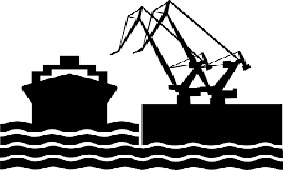
China’s port fee cuts add to coronavirus response

All port construction levies applying to imports and exports will be waived from 1 March to 30 June, while some other port fees, including port security charges, will be reduced by up to 20pc over this period, Chinese premier Li Keqiang said yesterday after chairing a state council meeting.
Charges for non-tanker cargo vessels will be cancelled, and the cost of railway insurance and fees on containers and freight cares will be halved by the end of June. The council is also examining road toll reductions to help the transportation sector hit hard by the coronavirus impact.
For commodities, the port fee reductions could reduce coal costs by 6.50 yuan/t, or about $1/t, coal importers forecast. The reduction may have limited impact on thermal coal demand.
The fee reduction will also reduce the cost of portside iron ore, which includes Yn25-30/wet metric tonne in port fees, potentially narrowing its differential to seaborne prices.
China's central bank has responded to the coronavirus outbreak with monetary easing, similar to other central banks, but yesterday's move is part of a more aggressive fiscal response than other regions, especially the US and the EU that have relied more on monetary easing to counteract the slowdown.
Chinese provinces and localities as of yesterday have announced planned investment of Yn2.79 trillion ($400bn) on projects for 2020. China's finance ministry pre-approved Yn848bn in local government bonds last month, which followed an accelerated rollout of provincial bonds at the start of the year.
China two weeks ago began allowing Chinese firms to apply for exemptions to import tariffs on nearly 700 products. Exemptions have been approved for LPG and petroleum coke, and are anticipated for coking coal, lifting spot trade.
Beijing also announced tax relief for affected industries including value-added tax exemptions for people working in transportation, tourism and delivery services.
The policy response and expected rebound in demand have supported ferrous markets.
Seaborne iron ore prices, an indicator of the biggest components of China's economy — manufacturing and construction — have erased most of the sharp falls that occurred when the outbreak took hold. The Argus ICX 62pc seaborne fines index fell by more than $15/dry metric tonne (dmt) to $80/dmt cfr Qingdao from 22 January-5 February, but has since recovered most of that, rising by $2.90/dmt to $90.40/dmt today.
Increased demand has also supported prices for the other main raw material for steel — coking coal — with prices for premium low-volatile hard grades up by $24.55/t, or 16pc, to $175.70/t cfr China this year.


Trump weighs using $2 billion in CHIPS Act funding for critical minerals

Codelco cuts 2025 copper forecast after El Teniente mine collapse

Electra converts debt, launches $30M raise to jumpstart stalled cobalt refinery

Barrick’s Reko Diq in line for $410M ADB backing

Abcourt readies Sleeping Giant mill to pour first gold since 2014

Nevada army depot to serve as base for first US strategic minerals stockpile

SQM boosts lithium supply plans as prices flick higher

Viridis unveils 200Mt initial reserve for Brazil rare earth project

Tailings could meet much of US critical mineral demand – study

Kyrgyzstan kicks off underground gold mining at Kumtor

Kyrgyzstan kicks off underground gold mining at Kumtor

KoBold Metals granted lithium exploration rights in Congo

Freeport Indonesia to wrap up Gresik plant repairs by early September

Energy Fuels soars on Vulcan Elements partnership

Northern Dynasty sticks to proposal in battle to lift Pebble mine veto

Giustra-backed mining firm teams up with informal miners in Colombia

Critical Metals signs agreement to supply rare earth to US government-funded facility

China extends rare earth controls to imported material

Galan Lithium proceeds with $13M financing for Argentina project

Kyrgyzstan kicks off underground gold mining at Kumtor

Freeport Indonesia to wrap up Gresik plant repairs by early September

Energy Fuels soars on Vulcan Elements partnership

Northern Dynasty sticks to proposal in battle to lift Pebble mine veto

Giustra-backed mining firm teams up with informal miners in Colombia

Critical Metals signs agreement to supply rare earth to US government-funded facility

China extends rare earth controls to imported material

Galan Lithium proceeds with $13M financing for Argentina project

Silver price touches $39 as market weighs rate cut outlook

















